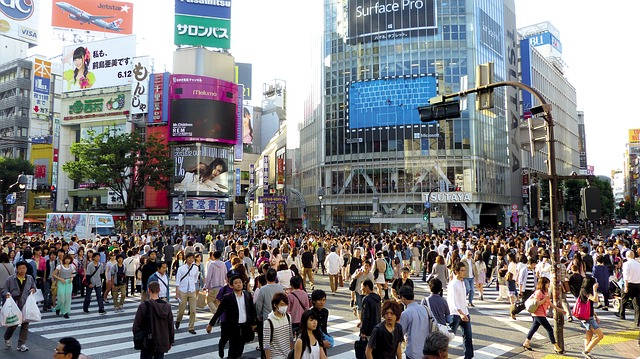 U.S. citizens do not need a visa for stays of 90 days or less for
tourism or business in Japan. However, their passports must be
valid for the duration of their stay.
Visitors may not be employed in Japan while they are on a visa-free
stay, and cannot change their visa status once they are in the
country.
You should consult the Consular Section of the Embassy of Japan at 2520 Massachusetts Avenue NW,
Washington, DC 20008, tel. (202) 238-6800, the nearest Japanese
consulate, or the Japanese Embassy's web site
for information about the Japanese visa waiver program. Once in Japan,
U.S. citizens cannot receive help securing a visa from U.S. consulates
or the U.S. Embassy.
U.S. citizens do not need a visa for stays of 90 days or less for
tourism or business in Japan. However, their passports must be
valid for the duration of their stay.
Visitors may not be employed in Japan while they are on a visa-free
stay, and cannot change their visa status once they are in the
country.
You should consult the Consular Section of the Embassy of Japan at 2520 Massachusetts Avenue NW,
Washington, DC 20008, tel. (202) 238-6800, the nearest Japanese
consulate, or the Japanese Embassy's web site
for information about the Japanese visa waiver program. Once in Japan,
U.S. citizens cannot receive help securing a visa from U.S. consulates
or the U.S. Embassy.
 In addition to visa and passport
requirements, visitors to Japan must also submit to photographs and
fingerprint scans upon entry. Some foreign nationals are except from
these requirements, such as minors under the age of 16, diplomatic or
official visa holders, permanent residents, and various others. Status
of Forces Agreement (SOFA) personnel need not submit to biometric
entry.
U.S. citizens entering or transiting Japan should have valid
passports and visas before leaving the United States. Passport and
visas services are not available at the airports in Japan, and visitors
who arrive without valid passports may be returned home immediately.
Travelers need a passport
with six months of validity in order to enter many Asian
countries.
U.S. citizens may not board flights in Japan without valid documents
for their onward destination, even if they are simply transiting in
Japan. See the foreign entry requirements for the country you plan to
visit to make sure everything is in order. Foreign visa applications
may take several weeks and cannot usually be completing during a
transiting stopover.
U.S. citizens may not board flight in Japan to China without a valid Chinese
visa.
Without having pre-planned the entire trip, the traveler is faced with
having to obtain a Chinese visa in Japan, which can be a lengthy and
complex process. U.S. citizens cannot expect help with Chinese visas
from the U.S. Embassy or consulates in Japan.
In addition to visa and passport
requirements, visitors to Japan must also submit to photographs and
fingerprint scans upon entry. Some foreign nationals are except from
these requirements, such as minors under the age of 16, diplomatic or
official visa holders, permanent residents, and various others. Status
of Forces Agreement (SOFA) personnel need not submit to biometric
entry.
U.S. citizens entering or transiting Japan should have valid
passports and visas before leaving the United States. Passport and
visas services are not available at the airports in Japan, and visitors
who arrive without valid passports may be returned home immediately.
Travelers need a passport
with six months of validity in order to enter many Asian
countries.
U.S. citizens may not board flights in Japan without valid documents
for their onward destination, even if they are simply transiting in
Japan. See the foreign entry requirements for the country you plan to
visit to make sure everything is in order. Foreign visa applications
may take several weeks and cannot usually be completing during a
transiting stopover.
U.S. citizens may not board flight in Japan to China without a valid Chinese
visa.
Without having pre-planned the entire trip, the traveler is faced with
having to obtain a Chinese visa in Japan, which can be a lengthy and
complex process. U.S. citizens cannot expect help with Chinese visas
from the U.S. Embassy or consulates in Japan.
 Military/SOFA
Travelers: SOFA enables all active-duty U.S. military to travel to
Japan with documentation and order from the Department of Defense. SOFA
family members, civilian employees and contractors need a passport and
often a SOFA-specific visa to enter Japan. Active-duty military
personal will need a civilian passport for off-duty travel around other
parts of Asia. Individuals who will be traveling officially should
obtain an Official Passport prior to leaving the United States to avoid
delays.
Japan's new Immigration Control and Refugee Recognition Act
has come into effect on July 9, 2012. A 2006 revision may require
individuals who earned their residency through Japanese ancestry to
prove that they do not have a criminal record in their country of
citizenship.
Military/SOFA
Travelers: SOFA enables all active-duty U.S. military to travel to
Japan with documentation and order from the Department of Defense. SOFA
family members, civilian employees and contractors need a passport and
often a SOFA-specific visa to enter Japan. Active-duty military
personal will need a civilian passport for off-duty travel around other
parts of Asia. Individuals who will be traveling officially should
obtain an Official Passport prior to leaving the United States to avoid
delays.
Japan's new Immigration Control and Refugee Recognition Act
has come into effect on July 9, 2012. A 2006 revision may require
individuals who earned their residency through Japanese ancestry to
prove that they do not have a criminal record in their country of
citizenship.


